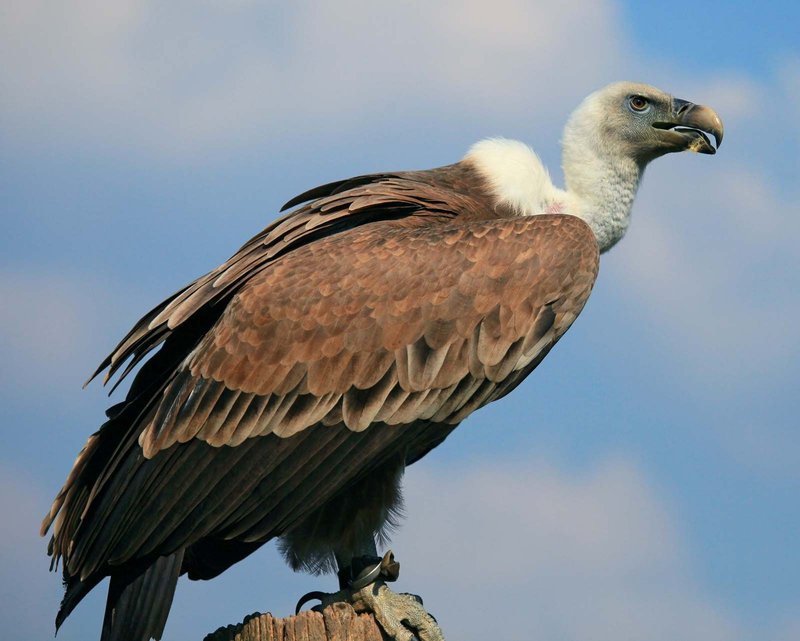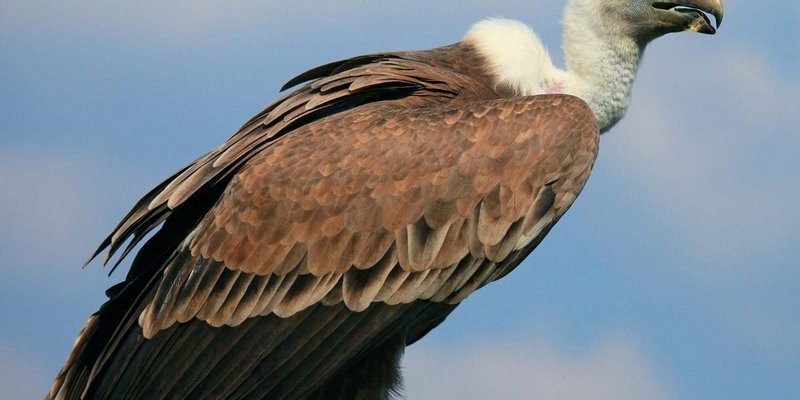
These scavengers have been around for millions of years, and with over 20 different species, they each have their unique quirks and characteristics. So, whether you’re a bird lover or just curious about the wildlife around you, let’s dive into some intriguing facts about vultures that might make you see them in a whole new light.
1. Vultures Are Nature’s Clean-Up Crew
You might be surprised to learn that vultures play a vital role in maintaining the health of ecosystems. When animals die, their bodies can be a breeding ground for bacteria and diseases. However, vultures have incredibly strong stomachs that can handle harmful bacteria and pathogens. By consuming dead animals, these birds effectively remove decaying matter from the environment, preventing the spread of disease.
Think of vultures as mother nature’s garbage collectors. Without them, the world would be a lot messier and more dangerous. They swoop in and devour the remains, leaving behind just bones. This not only cleans up the environment but also enriches the soil with nutrients as their droppings contain seeds and fertilizers.
2. They Have Super-Sensitive Noses
While many birds have great vision, vultures are known for having a fantastic sense of smell. In fact, some species, like the Turkey Vulture, can smell a dead animal from over a mile away! Imagine having a nose that could sniff out dinner from that far—pretty impressive, right?
This sense of smell is crucial for their survival. Vultures can locate carrion efficiently, allowing them to find food sources that other scavengers may miss. While some birds rely on sight to find food, vultures have this unique ability that sets them apart, helping them thrive in their habitats.
3. They Can Soar for Hours
Vultures are masterful fliers, capable of soaring for hours without flapping their wings. By utilizing thermal updrafts—columns of warm air rising from the ground—they conserve energy and travel long distances in search of food. This allows them to cover vast territories, ensuring they can find enough dead animals to sustain their populations.
Picture a child flying a kite on a breezy day. Just like that kite catches the wind, vultures take advantage of thermal currents, effortlessly gliding high above the ground. This skill not only showcases their adaptability but also helps them keep a lookout for potential meals while saving energy.
4. Their Feet Aren’t Built for Grabbing
Unlike many birds of prey, vultures have relatively weak feet. They don’t have strong, sharp talons for catching live prey. Instead, their feet are designed for stability when they land on carcasses. This might seem like a disadvantage, but it fits perfectly with their scavenger lifestyle.
Visualize a vulture standing on a meal, much like a person who might not need to catch their food but is simply there to eat. They rely on their strong beaks to tear into the flesh rather than their feet to grasp it. This fascinating adaptation allows them to focus on what they do best: cleaning up the environment.
5. Vultures Have Unique Social Structures
Vultures are often seen congregating in groups, and they certainly have their social dynamics. They are known to engage in a behavior called “commensal feeding,” where multiple vultures eat from the same carcass. This not only allows them to share resources but also provides safety in numbers.
Imagine a group of friends gathering at a buffet; everyone can fill their plates and enjoy a feast together. Similarly, vultures socialize and watch each other’s backs while feasting. They establish a pecking order, so you’ll often see the bigger species, like the Griffon Vulture, at the top, while smaller ones wait patiently for their turn.
6. They’re Found on Every Continent Except Antarctica
Vultures have a wide distribution, with species found in various environments across the globe. From arid deserts to lush forests, these birds adapt to different habitats, although they do tend to favor open spaces where they can easily spot food.
Consider this: just like how you might find pizza in different styles around the world—New York style, Chicago deep-dish, or Neapolitan—vultures also adapt to the places they inhabit. Each species has its unique traits that make it well-suited to its environment. However, the lack of vultures in Antarctica shows that even these tough birds have their limits!
7. Some Vultures Are Monogamous
Vultures are actually quite loyal when it comes to mating. Many species form strong, monogamous bonds with a single partner. They often return to the same nesting site each year, raising multiple chicks together. This commitment may not initially sound like a vulture trait, but it’s a significant part of their social behavior.
Think of a pair of vultures as a couple who enjoys returning to their favorite vacation spot every year. By sticking together, they ensure that their offspring have a better chance of survival in a world full of predators and competition.
8. They Rely on Their Vision for Long-Distance Hunting
While vultures are great at smelling food from afar, they also rely heavily on their eyesight when it comes to spotting carrion over long distances. They have excellent vision that allows them to spot food while soaring high above the ground.
This dual approach—using both smell and sight—gives vultures a significant advantage in the wilderness. It’s a bit like having two powerful tools in a toolbox: one for detecting food and the other for locating it visually. This combination helps them ensure they’re never too far from their next meal.
9. They Face Threats from Human Activities
Despite their critical role in the ecosystem, vultures face numerous threats from human activities. Habitat destruction, poisoning from carcasses laced with toxins, and hunting have all contributed to declining vulture populations worldwide.
This situation can feel overwhelming, but it’s essential to raise awareness about their critical role. By understanding how vultures benefit our environment, we can advocate for their protection. Imagine a world where we appreciate the role of all creatures, recognizing that every species has its part to play.
10. Vultures Are Symbols in Various Cultures
Throughout history, vultures have been depicted in various cultures, often symbolizing death or the cycle of life. In ancient Egypt, the vulture was regarded as a protective symbol, while certain Native American tribes saw them as guides to the spirit world. This rich tapestry of cultural significance shows that vultures are much more than just scavengers; they hold deep meanings in many societies.
Think about how you perceive a vulture. Are they simply “gross birds,” or do you see the deeper connection they have to the environment? By learning more about them, we can appreciate the beauty in all creatures, even those that might seem unappealing at first glance.
In conclusion, vultures may not win any beauty contests, but they certainly hold an essential place in our ecosystems. Understanding these ten facts about vultures helps us appreciate their unique adaptations and the vital role they play in keeping our environment healthy. Next time you see one soaring high in the sky, I hope you’ll think of them as nature’s unsung heroes, working tirelessly to keep our world clean and balanced.

